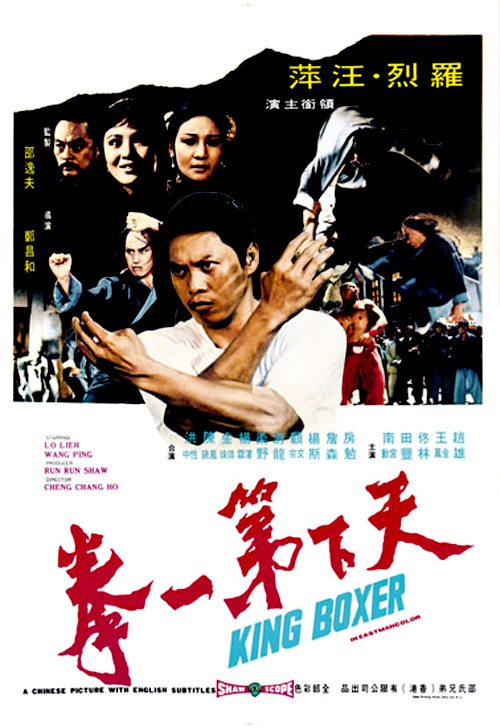« Coffee Break | Main | Yakuza Weapon »
January 30, 2012
The Cinema of Hong Kong

The Cinema of Hong Kong - History, Arts, Identity
Edited by Poshek Fu and David Desser - 2000
Cambridge University Press
I have mixed feelings about this collection of essays on Hong Kong cinema. Part of it stems from reading academic dissertations. As David Bordwell proves time and again, you can be academic without writing like one. Strangely enough, the most academic of these essays is also the one with a small filmography of cited films. I'm not enthused about books on film that are skimpy in illustrations and lack some kind of filmography for future reference. I also had mixed feelings about getting this particular book because, while I wanted some greater knowledge about the history of Hong Kong film, it seemed that one published over ten years ago might not be the best source.
What some of the essays helped me understand was not only a bit more about the history of Hong Kong film, but also the history of Hong Kong. In terms of film history, it helps put in a new perspective, at least for me, what is currently happening in Hong Kong cinema. What I have come to understand is that the tug of war between Mandarin and Cantonese dialect forces has been constant part of that history. Why that is important is that it puts the current challenges for Hong Kong filmmakers as part of continued shifts in what has, and what will, define Hong Kong cinema.
It is from this perspective that one can understand how commercial forces, meaning those of mainland China, have achieved for now, what cultural and political forces tried to achieve in the past. The Hong Kong cinema that gained international attention in the Eighties and Nineties, was primarily Cantonese. The filmmakers identified themselves as being part of Hong Kong, rather than part of the diaspora that left the mainland, or identified themselves as part of mainland China. In the years since Fu and Desser's book was published, the Hong Kong film industry has become a shadow of its former self.

What is happening currently might be described as another transitional stage regarding national and cultural identity. To take two of the most famous examples, John Woo and Tsui Hark, both now make films primarily for the mainland China market, allowing themselves the greatest commercial viability. Ann Hui and Edmond Pang, at least for now, are still specifically Hong Kong based in both subject matter, language, and especially in Pang's case,with Dream Home, making films that can not be shown in the mainland. Johnny To appears to be in both camps, between the Hong Kong gangster films that have made his reputation, and also making the kind of romantic comedies that are one of the two most popular genres in mainland China. (The other genre, if you haven't guessed, would be the costume epic.)
As for individual essays, David Desser discusses some of the history of Warner Brothers and the martial arts genre, including the development of the television series, Kung Fu, and the release of Five Fingers of Death (King Boxer), the first Hong Kong film to be distributed by a Hollywood major. There is also some explanation regarding why the martial arts films from Hong Kong were embraced by black urban youth. Maybe he felt it was unnecessary, but Desser does not mention how Warner Brothers had hoped lightning would strike again with another Asian genre, until The Yakuza failed at the box office.
Astonishing to read is Law Kar's chapter on how some of the films made in the Thirties, were produced in the United States, with Hong Kong immigrants on both sides of the camera, primarily in San Francisco. Also relayed is the story of Esther Eng, actress turned director, who made nine features, all thought to be lost. Eng's personal life seems just as colorful, as it turns out that bedding leading ladies was not just the province of male directors.
Seeing the films is another matter as much has been lost over the years. While most of the the films discussed from the Eighties onwards are easily available on DVD, it's the earlier films that require a bit more detective work, and often a region free player, in order to be viewed.
Posted by Peter Nellhaus at January 30, 2012 08:15 AM
